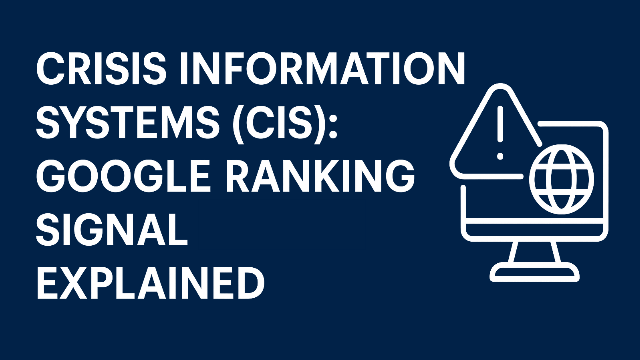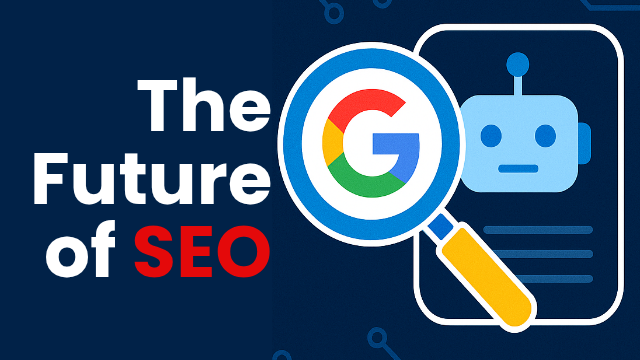Why Every Local Business Needs a Beautiful Website and Strong SEO Strategy
In the fast-paced digital age, an online presence is necessary for local businesses. A captivating website paired with a solid SEO strategy can distinguish between dominating the market and struggling to keep up. Let’s dive into why these elements are critical for success.
First Impressions Matter
A business’s website is often the first interaction customers have with the brand. A visually appealing and user-friendly design builds trust and sets the tone for customer expectations. Stanford studies show that 75% of consumers judge a company’s credibility based on its website design1. Visitors are more likely to stay on a website that looks professional and reflects the quality of the products or services offered.
Beyond aesthetics, functionality plays a key role. A slow-loading or poorly organized site can drive potential customers away, no matter how attractive it looks. Ensuring a seamless user experience (UX) is crucial to retaining visitors and encouraging them to explore further.
The Local Search Advantage
Most people search online for businesses near them before making a purchase decision. According to Google, 76% of people who search for something nearby on their smartphone visit a business within a day2. Local SEO helps businesses appear in these search results, ensuring they capture the attention of nearby customers. Optimizing for local search includes claiming and maintaining your Google Business Profile, earning positive reviews, and using location-specific keywords.
For example, a bakery in Chicago will benefit from targeting keywords like “best bakery in Chicago” or “fresh bread near me.” These targeted efforts help businesses show up prominently on search engine results pages (SERPs) and maps, directly influencing foot traffic and sales.
Credibility and Trust
An outdated or poorly designed website can make a business appear unreliable. Customers equate a modern, responsive website with professionalism and trustworthiness. Research indicates that 88% of online consumers are less likely to return to a site after a bad experience. Additionally, consistent branding across the site—from logos to color schemes—creates a cohesive image that strengthens credibility.
SEO further enhances trust by ensuring a business ranks higher in organic search results. Most users instinctively trust the first few search results more than paid advertisements. By appearing at the top, a business signals authority and relevance in its industry.
Mobile Optimization Is a Must
With the majority of searches now conducted on mobile devices, having a mobile-friendly website is non-negotiable. A site that adjusts seamlessly to different screen sizes ensures a positive experience for users on smartphones and tablets. Google’s mobile-first indexing also means that mobile optimization directly impacts SEO rankings.
Failing to prioritize mobile optimization can result in losing potential customers to competitors who offer a better mobile experience. Simple features like click-to-call buttons and fast-loading pages can significantly improve engagement and conversions.
Get A Mobile Optimized, Eye Catchy Website for Your Business Now
Click Here
Cost-Effective Marketing
Traditional advertising methods like billboards or flyers can be expensive and hard to measure in terms of ROI. In contrast, a strong website and SEO strategy provide cost-effective ways to reach your target audience. By investing in these areas, businesses can attract organic traffic and convert leads without the recurring costs of paid campaigns.
Moreover, the results of a solid SEO strategy compound over time. While PPC campaigns stop driving traffic as soon as you stop paying, organic traffic can grow consistently with ongoing optimization. SEO has a 14.6% conversion rate compared to 1.7% for traditional outbound methods like cold calling.
Staying Ahead of the Competition
Competitors in your industry are likely already investing in their online presence. Falling behind in this area means losing market share to businesses that understand the importance of digital marketing. A professional website and effective SEO ensure you not only compete but also stand out.
Analyzing competitors’ online strategies can also reveal opportunities for improvement. Whether it’s targeting underserved keywords or improving site speed, staying proactive keeps you ahead in the race.
The Role of Analytics and Insights
A website offers more than just a digital storefront—it provides invaluable data about your customers. Tools like Google Analytics reveal insights into user behavior, popular pages, and traffic sources. These metrics guide decision-making and help refine marketing strategies.
SEO also provides data-driven benefits. Keyword performance, search trends, and competitor analysis are essential for adapting to changing market conditions. By leveraging these insights, businesses can stay relevant and meet evolving customer needs.
Building Long-Term Relationships
A great website combined with a strong SEO strategy fosters long-term customer relationships. Features like blogs, email sign-ups, and customer reviews keep visitors engaged and encourage repeat visits. SEO ensures that new customers can easily discover your business, while the website provides a platform to nurture their loyalty.
Incorporating personalized content and clear calls-to-action (CTAs) further strengthens connections. A website that prioritizes user engagement becomes a valuable tool for turning casual visitors into lifelong customers.
Conclusion
For local businesses, a beautiful website and a strong SEO strategy are no longer luxuries—they are necessities. Together, they enhance visibility, build trust, and drive sustainable growth. Businesses that invest in these areas position themselves as leaders in their community, ready to meet the demands of an increasingly digital audience.
The digital landscape will only become more competitive. Starting now ensures your business stays ahead, connects with customers, and achieves long-term success.
- Stanford University Study: https://credibility.stanford.edu/guidelines/index.html ↩︎
- Google Study: https://www.thinkwithgoogle.com/consumer-insights/consumer-trends/mobile-location-searches-to-store-visit-data/ ↩︎





